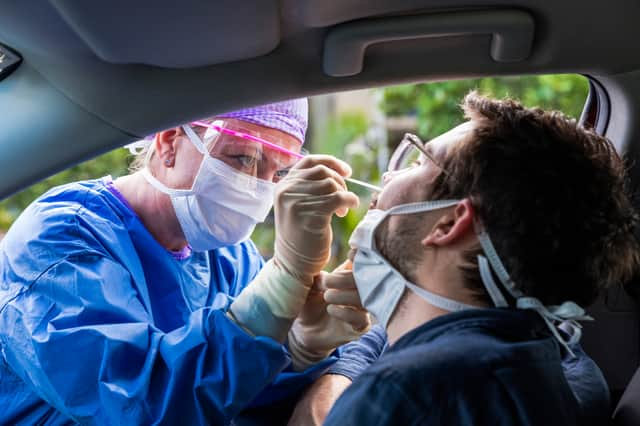Bristol Covid variant ‘could infect people who have been vaccinated’ - what experts are saying


The variant of Covid-19 which emerged in Bristol last week may infect people who have been vaccinated, or reinfect those who have already recovered from coronavirus, a Scientific Advisory Group for Emergencies (SAGE) expert has warned.
Speaking to ITV’s Robert Peston, Professor John Edmunds said, “Where it has an advantage, potentially at least, is that it may be able to reinfect people who have been previously infected or have been previously vaccinated - that’s the real worry with that particular virus.”
What is the Bristol variant?
Advertisement
Hide AdAdvertisement
Hide AdThe Bristol Covid strain emerged early in February 2021, along with the Liverpool mutation. The Bristol variant is a mutated version of the Kent variant, which was highly transmissible, and considered the key factor in the UK’s winter lockdown restrictions.
On Wednesday (10 Feb) there had been 14 cases of the variant in Bristol, four in Manchester, and three other scattered cases.
Professor Edmunds suspects that the mutation is not as transmissible as the Kent variant. The main concern is its potential to reinfect.
Like other variants that have appeared, this mutation (known officially as E484K) has spiked worry over whether it could make the vaccine less effective at stopping the spread of coronavirus.
Advertisement
Hide AdDespite the fear over effectiveness, health officials have said they have a “high degree of confidence that the vaccine will work against variants”.
Advertisement
Hide AdThe arrival of the Bristol variant means there are four variants of the concern being monitored by government advisors. These are the Kent mutation, the South Africa strain, the mutation from Brazil which has not yet been identified in the UK, and the new Kent mutations.
‘More or less free’ by end of year
Professor Edmunds predicts that the UK should be “more or less free” of Covid-19 by the end of the year.
The epidemiologist, however, warned against the loosening of restrictions, as it increases the potential for the virus to spread again.
Advertisement
Hide Ad“I think we do have to keep our border pretty tight at the moment - nobody likes this,” he said.
“But we’ve identified these significant new variants that are out there and we need to be able to arm ourselves against them and we don’t have new vaccines that could potentially arm ourselves against these new variants yet.
Advertisement
Hide Ad“I know that companies are working very hard on developing new vaccines in order to protect against these potential new variants that might affect us so I do think we need to be very cautious at the moment about travel abroad.”